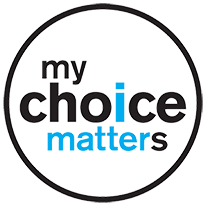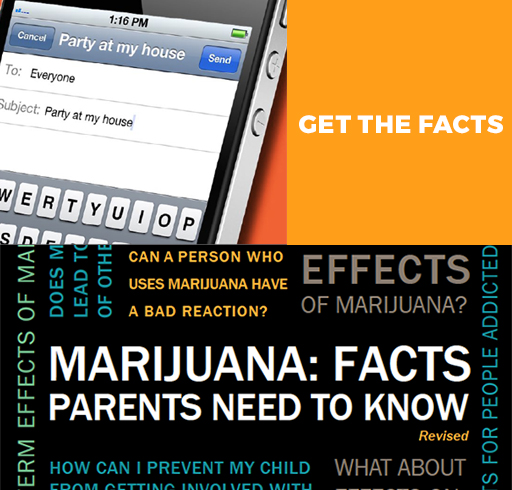FOR PARENTS
Here are answers to the questions about substance use most frequently asked by parents.
A: Parents can give a clear message to their teenagers about drinking (“I don’t want you to drink at this stage of your life because it puts your personal safety at risk”) and have a surprising amount of influence. Discuss with your teens what choices they have when they find themselves in a situation where some of their friends may be drinking. If you find that your teen is drinking at parties, you may want to focus on ways that they can increase their safety and responsible decision-making in these situations.
A: There are many dangers associated with drinking during the teenage years. Even with just a few drinks, alcohol begins to affect judgment. Drinkers then may make decisions that put their own and others’ health and safety at risk. Teenagers themselves readily admit that when they drink they often behave in ways they later regret. This can range from “acting stupid” to saying something rude to a friend or getting involved sexually. Fights, damage to property, injuries, unwanted pregnancy, STDs (sexually transmitted diseases), trying other drugs and riding with an impaired driver are all possible harmful outcomes of teenage drinking.
Sometimes party drinking takes the form of “chugging” or “funneling” — power drinking or contests where young people drink as much as they can as quickly as they can. This is particularly risky, because drinking in this manner can cause severe intoxication, alcohol poisoning, leading to stoppage of breathing and even death. Death can also occur because a person becomes unconscious and chokes on his or her own vomit. Parents need to discuss with their teens about calling for emergency assistance when they find someone in this situation.
A. Some parents do feel that if alcohol is not made to be the “forbidden fruit”, it will lose some of its attraction for a teenager. Having a parent present in the home when there is a teenage drinking party does not prevent the harmful or legal consequences of underage drinking. Some recent studies have found that adult supervised teen drinking can actually increase the potential for problems with teen drinking.
A. Harm reduction is the approach that our first priority should be to reduce the problems and harms associated with alcohol and other drug use. An example of this approach would be supporting a Designated Driver initiative. Having a designated driver does not condone alcohol use, but it does allow others to drink more safely. It is based on the knowledge that impaired driving can cause irrevocable damage and that designating a non-drinking driver reduces the risks for the driver, for those who have been drinking and for others on the road.
Many parents who advise their children against drinking and use of any drug will add, as their bottom line, that if their teens do happen to drink or use drugs, they can call their parents to ensure they have a safe way to get home. Parents who do not want their children to use alcohol can still warn their teens to never leave their drink (alcoholic or non-alcoholic) unattended at a party or take a drink from anyone, in order to prevent a drug from being slipped into their drink. Particularly as teens grow older and parents realize that they have begun to drink, parents can discuss with their teens ways to increase their personal safety, for example by having a sober ‘buddy’ around.
There is strong evidence that if teens do choose to drink during their later teen years by limiting the amount they drink on one occasion (for example, one or two drinks at most) they can decrease the associated risks and avoid the harms of being drunk. Parents can discuss this option for increased safety with their teens even if they prefer their teen not to drink at all.
Sources: National Institute on Drug Abuse; National Institutes of Health; U.S. Department of Health and Human Services.
HAVE THE CONVERSATION
Some parents feel uncomfortable when it comes to discussing more sensitive subjects with their teens. As intimidating as it may be, the topic of drug and alcohol use should not be avoided. Long before parents suspect their children may be using drugs or alcohol, they should talk with them about the dangers of drugs and alcohol―a conversation that could indeed decrease the chances of having to talk with them about seeking help for a problem down the road.
Here are some tips to help parents talk to their teens about drugs and alcohol:
Before even having the discussion, parents should tell their teens that they have something important they would like to talk to them about, and ask them when they would like to have this conversation. The last thing parents want to do is catch their children off-guard when they are busy and are less likely to want to have this important talk. If teens set the time and place for the discussion, there’s a good chance they’ll be more actively engaged.
Unless parents have hard evidence that their children are drinking or abusing drugs, they should not start the conversation by confronting them with demands, assumptions and accusations. Instead, they should start by asking their kids what they know about drugs and what may be happening in their schools and social circles. Coming from a place of inquisitiveness may make it less likely for teens to be defensive or lie. If parents seem open and comfortable, so will their children.
Research shows that increasing fear about drugs and alcohol without providing clear action steps can actually increase use. This happens when we arouse too much fear and provide too simple of an action message (RSAC Issue Brief 1: Use of Scare Tactics in Prevention Messaging, March 3, 2016). While it is important for parents to tell children that drug and alcohol use can come with dire consequences, it may be a good idea to focus on the positives, too. For example, they can explain that by avoiding substances and effectively managing issues such as peer pressure, it might make it easier for them to benefit from more important things like getting into a good college or performing well in sports and other extracurricular activities.
If parents truly find that they cannot have this conversation with their children themselves, it’s best to call a professional. A family counselor can sit with parents and children and make sure they are having heartfelt and productive discussions
- Substance Use Resources and Info for Cape Cod
- Call BSAS Hotline at 800-327-5050
- Set a reasonable time for your child to be home.
- Be awake and interact with them when they come home.
- Be clear with your children and remind them often about your expectations that they not use drugs or alcohol.
- Talk with them in advance about situations that may arise around alcohol, tobacco, and other drugs.
- Discuss together ways to avoid uncomfortable situations.
- Tell them why you make the decisions you do about chemicals, including medications.
- Offer your children a safe ride home if they call. (That means you have to be available.)




